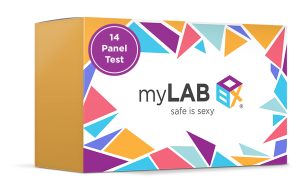What Causes HPV In Females?

Human papillomavirus (HPV) affects more than 79 million Americans. It is currently the most common sexually transmitted infection (STI) in the United States. While there are several varieties of HPV the most severe cases can cause genital warts and cancer. Because HPV infections are more prominent for women it has become an important topic to become familiarized with.
HPV is spread through:
- Vaginal, oral, or anal sex. HPV can be spread even if there are no symptoms. This means you can get HPV from someone who has no signs or symptoms.
- Genital touching. A man does not need to ejaculate for HPV to spread. HPV can also be passed between women who have sex with women.
- Skin to skin contact, not necessarily sexual in nature, if there is a wound or lesion
- Childbirth from a woman to her baby
While HPV can be transmitted via an open wound, scratch or tear on the surface of your skin, generally, the virus travels when your skin comes in contact with someone else’s skin who is carrying the virus.
Genital HPV infections are contracted through sexual intercourse, anal sex and other skin-to-skin contact in the genital region. HPV can even be passed when a person shows no symptoms. That’s why it is so important to be tested on a regular basis using tests like those offered by myLAB Box, especially before having sexual relations with a new partner. HPV infections that result in oral or upper respiratory lesions are contracted through oral sex.
It is especially important if you are pregnant and have an HPV infection with genital warts, the warts might enlarge and multiply during pregnancy. Treatment might have to wait until after delivery. Enlarged genital warts may even block the birth canal, complicating vaginal delivery, which could result in alternate delivery methods such as a c-section.
Warts are contagious. They spread by contact with a wart or with something that touched the wart. Anyone who is sexually active can get HPV, even if you have had sex with only one person. You also can develop symptoms years after you have sex with someone who is infected. This makes it hard to know when you first became infected. If you want to know for sure if you or someone you know has HPV you can obtain tests at myLAB Box.
Once you’ve been tested and find out you are HPV free, you can do several things to lower your chances of getting HPV.
Get vaccinated. The HPV vaccine is safe and effective. It can protect against diseases (including cancers) caused by HPV when given in the recommended age groups. The Center for Disease Control (CDC) recommends 11 to 12-year olds get two doses of HPV vaccine to protect against cancers caused by HPV.
For more information on the recommendations, please see: The Center for Disease Control and Prevention
If you are sexually active
- Use latex condoms, every time you have sex. Proper use can lower your chances of getting HPV. However, HPV can infect areas not covered by a condom – so condoms may not fully protect against getting HPV;
- Be in a mutually monogamous relationship – or have sex only with someone who only has sex with you.
STI’s / STD’s can cause concern for everyone. It is important to know if you are a carrier of any of them. Fortunately, you can obtain the tests privately, safely and accurately through myLAB Box. They even offer post diagnosis care and can help alleviate worries you may have.
Do you think you may have been exposed to HPV recently? Check out the myLAB Box HPV test here.
Popular Tests

Total Box
14 Panel STD Test
In Stock – Free Shipping
$369 – $399
